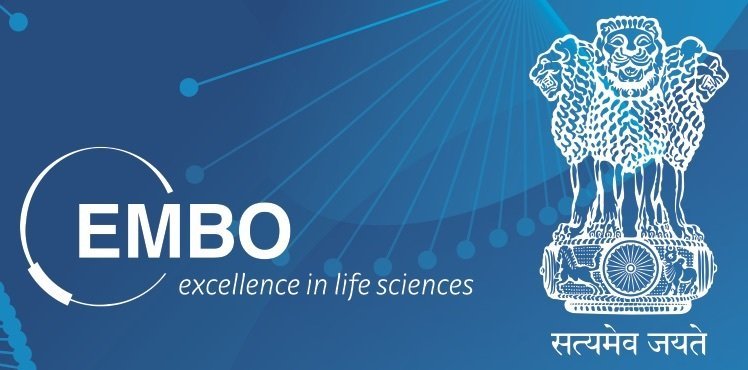What do young Indian scientists expect from the India-EMBO partnership?

Generous, flexible, fair, efficient, prestigious: this is how past Fellows commonly describe their experience with the European Molecular Biology Organisation (EMBO) and its programmes. EMBO promotes quality life science research and seeks to nurture international interactions and mobility among scientists. They support talented researchers in all areas of life science through their grants and funding programmes — programmes that Indian scientists will be now be able to participate in.
Cementing a long-standing, albeit unofficial, scientific partnership, India has recently been inducted as a member state of the European Molecular Biology Conference (EMBC) and the European Molecular Biology Organisation (EMBO) through an agreement with the Department of Biotechnology (DBT). This makes India one of the first member states outside Europe and its neighbours. The official announcement and launch of this partnership will be accompanied by a blitzkrieg of events in the first week of February 2016 in institutes across the country in which scientists from Europe and India as well as EMBO representatives will talk about science, the opportunities afforded by the partnership and the implications of the agreement for Indian science.
Some of the programmes that Indian researchers will now have access to — with evaluation and benefits on par with researchers from other member states — are: EMBO Long-Term/ Short-Term fellowships that support postdoctoral and predoctoral research experience, EMBO Courses and Workshops that can be organised with funding and administrative assistance, EMBO Young Investigators Programme—a 3‑year programme that offers financial, academic and practical support to young PIs, EMBO Science Policy Programme that focusses on the governance of new technologies for scientific progress and their implications, EMBO Global Meetings, The EMBO Meeting and EMBO Publications.
IndiaBioscience spoke to young scientists from across India, all of whom have previously been award EMBO Long-Term Fellowships during their postdoctoral stints in various European labs. We asked them about their experiences as EMBO Fellows, what they find exciting about the DBT-EMBO partnership and how they think it will benefit Indian science.
“For me, what would be most interesting is the breadth of biology EMBO covers. I work in plant biology. Many grants don’t cover my area of research, so my applications will be unsuccessful. The DBT-EMBO partnership will open up avenues for those who are not working in fields like biomedical science that most major grants favour,” said Sourav Datta, a young scientist from the Indian Institute of Science Education and Research (IISER), Bhopal.
“EMBO workshops would be one thing I would look forward to,” said Niti Kumar, Scientist at the CSIR-Central Drug Research Institute (CSIR-CDRI), Lucknow, referring in particular to the Laboratory Management Courses that are open exclusively to EMBO Fellows and Young Investigators. The partnership would also unlock networking opportunities through EMBO Meetings, added Kumar. While she lauded the Government’s efforts to bring in international grants and collaborations, Kumar urged that these schemes need to be more widely advertised across institutes and universities in second-tier cities, where awareness of opportunities is often lacking.
The interviewees also commended EMBO for being open and receptive to suggestions from its Fellows. Based on discussions at EMBO Meetings, recommendations for an extension period to the 2‑year EMBO Long-Term Fellowships have been embraced, said Nixon Abraham, Assistant Professor at IISER, Pune. In a similar vein, Abraham and other ex-Fellows hope that requests for a return phase to previously held Fellowships will also be heard, especially now that they will be able to apply from India.
Yusuf Akhter, another former EMBO Fellow, now an Assistant Professor at the Central University of Himachal Pradesh was optimistic that the partnership will serve to attract more scientists to come [back] and set up labs in India. “The grant money is good. It may even encourage people from other EMBO countries to move to India,” he said. Others believe it would also help new faculty who have come back from [postdoctoral] experiences in Europe to maintain their ties with European labs in some ways. The partnership is also seen as an impetus for Indian graduate students seeking postdoctoral opportunities in Europe. In Datta’s words, “Labs are happy to take good students, but funds are usually the bottleneck.”
The agreement seeks to propel life science research in India forward, by opening up avenues for young scientists in India to forge international collaborations and explore new ideas together. The implications and opportunities afforded by the partnership will be dwelt upon during the weeklong launch that happens in 7 cities across the country from 1 – 8 February, 2016.
Venue and speaker details for each event can be found here. If you are unable to attend in person, tune in to our live broadcast!